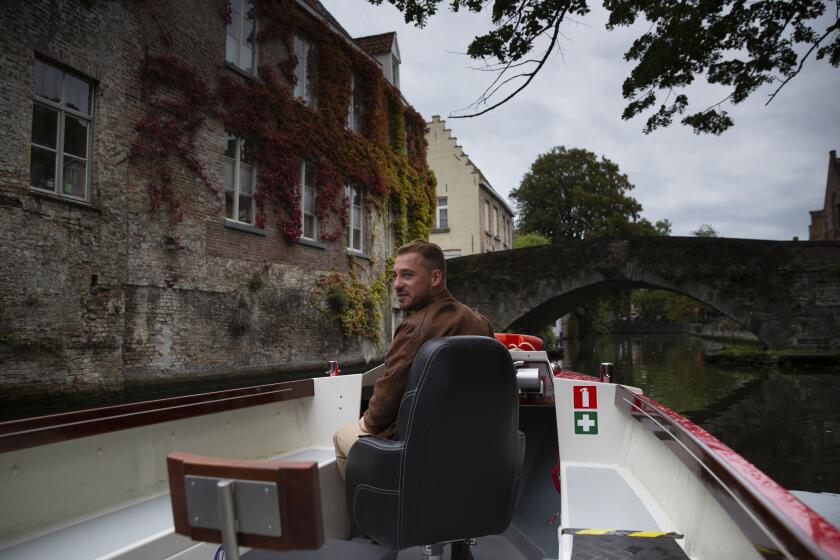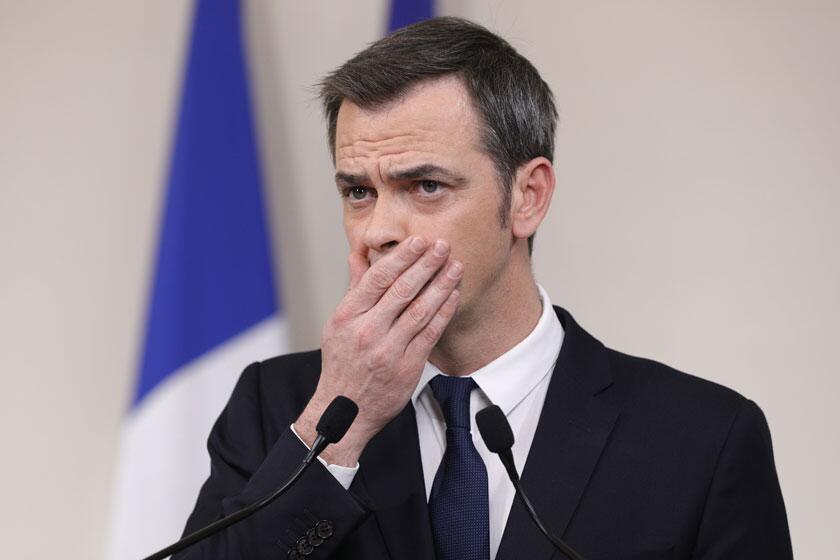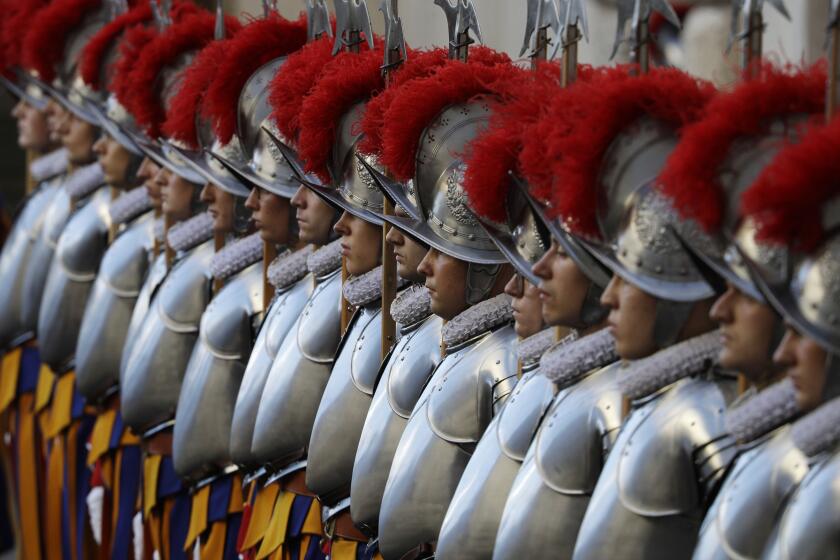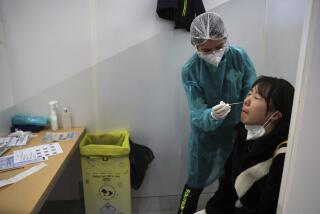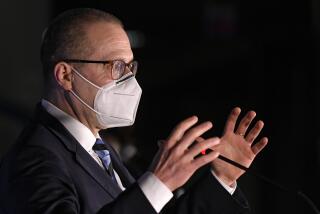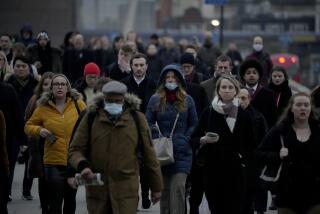Europe reels as it sets new coronavirus records, imposes new restrictions
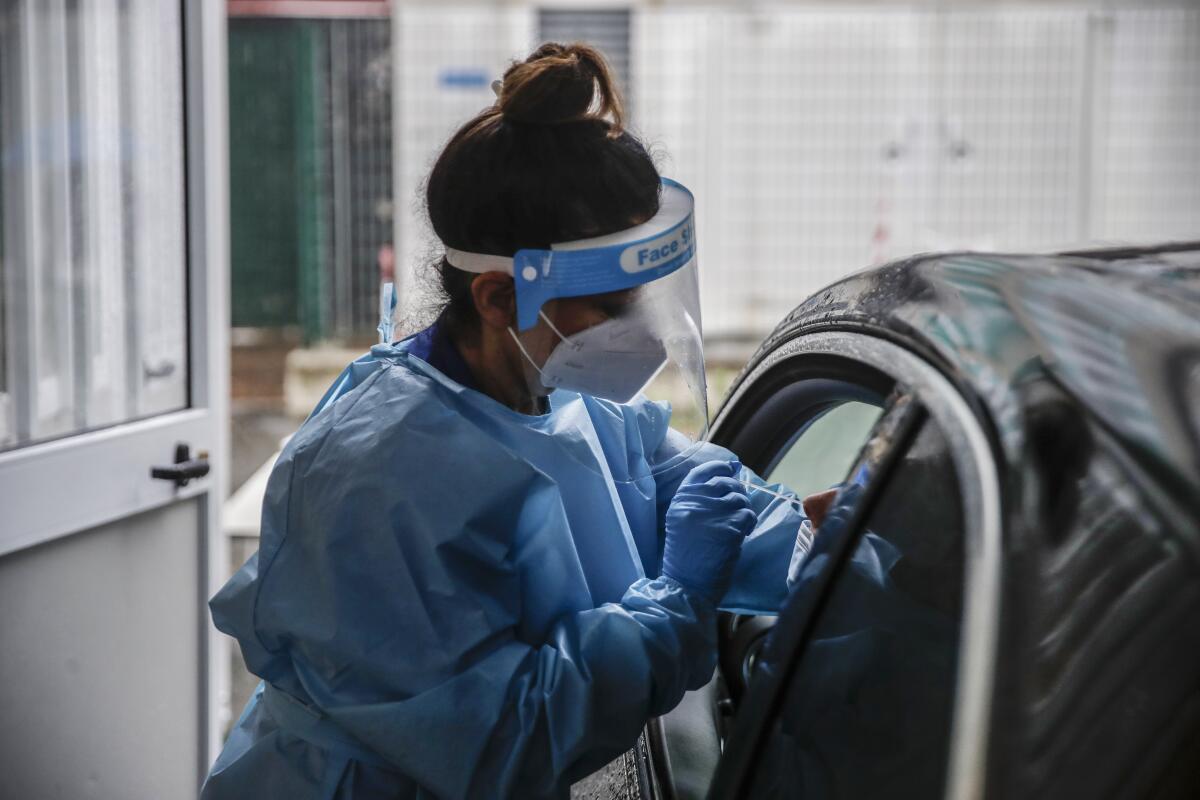
- Share via
BERLIN — Fears rose Thursday that Europe is running out of chances to control its fall coronavirus outbreak, as infections hit record daily highs in Germany, the Czech Republic, Italy and Poland.
France has slapped a 9 p.m. curfew on many of its biggest cities, including Paris. Britain on Thursday announced new limits on gatherings in London and has imposed more stringent measures in the north of England. Italy has issued a nationwide mask-wearing mandate. The Netherlands has ordered bars and restaurants to shut for several weeks.
The head of the World Health Organization’s Europe office urged governments to be “uncompromising” in their efforts to control the spread of the virus.
“These measures are meant to keep us all ahead of the curve and to flatten its course,” the WHO’s Dr. Hans Kluge said. “It is therefore up to us to accept them while they are still relatively easy to follow instead of following the path of severity.”
Kluge cited epidemiological models suggesting that if 95% of people wear masks and practice other social-distancing measures, Europe could avoid about 281,000 deaths by February. But relaxing restrictions instead could lead to a fivefold increase in deaths by January, he warned.
European nations have collectively seen nearly 230,000 confirmed deaths from COVID-19 — more than the nearly 217,000 deaths reported so far in the United States, according to figures tallied by Johns Hopkins University.
Europe’s leanest summer tourist season in recent history is drawing to a close, six months after the coronavirus hit the continent hard.
While Germany, Europe’s most populous nation, is still in comparatively good shape, alarm bells are ringing there, too. On Thursday, the national disease control center reported 6,638 new cases over 24 hours — exceeding the previous record of nearly 6,300 set in late March, although testing has expanded greatly since then.
Chancellor Angela Merkel and Germany’s 16 state governors agreed Wednesday night to tighten mask-wearing rules, make bars close early and limit the number of people who can gather in areas where coronavirus infection rates are high. But those measures “probably won’t be enough,” Merkel’s chief of staff, Helge Braun, told ARD television.
“We must stop this exponential rise — the quicker the better,” Merkel said, noting that neighboring European countries are having to take “very drastic measures.”
The Czech Republic has shut down its schools. The Health Ministry there confirmed 9,544 new coronavirus cases Wednesday, exceeding the days-old previous record by more than 900. The government announced Thursday that the military would set up a coronavirus hospital at Prague’s exhibition center.
“We have to build extra capacity as soon as possible,” Prime Minister Andrej Babis said. “We have no time. The prognosis is not good.”
French police search the homes of the former prime minister and other top officials in an investigation of the government response to the coronavirus.
In France, President Emmanuel Macron put 18 million residents in nine regions, including Paris, under a 9 p.m. curfew starting Saturday for at least four weeks, and possibly through Dec. 1.
Aurelien Rousseau, director of the Paris region’s public health agency, said nearly half of the region’s intensive care beds were now occupied by coronavirus patients, with other hospital beds filling rapidly, too.
“It’s a kind of spring tide that affects everybody simultaneously,” Rousseau said. “We had a blind spot in our tracking policies. It was the private sphere, festive events.”
The British government Thursday moved London and a half-dozen other areas into the country’s second-highest virus risk level, meaning that millions of residents will be barred from indoor meetings with people other than from their own households and will be asked to minimize travel.
“I know that these restrictions are difficult for people. I hate the fact that we have to bring them in,” British Health Secretary Matt Hancock said. “But it is essential that we do bring them in both to keep people safe and to prevent greater economic damage in the future.″
The WHO’s Kluge said that most of the spread is happening in homes, indoor spaces and communities not complying with protection measures.
“The evolving epidemic in Europe raises great concern,” he said. “But we should not hold back with relatively smaller actions in order to avoid the same very painful damaging actions we saw in the first peak.”
The Vatican says the coronavirus has hit the Swiss Guards, with four guards testing positive for the coronavirus and showing symptoms of COVID-19.
Italy, hard hit in the first wave but so far spared the worst of the second, recorded its biggest single-day jump in infections Wednesday since the start of the pandemic. It added another 7,332 cases amid a resurgence that is straining the country’s contact-tracing system.
Poland registered a record of nearly 9,000 new cases Thursday. Masks have been required outdoors since Saturday, and strict limits have been imposed on the size of gatherings.
Slovakia, Slovenia, Croatia and Bosnia also announced record daily case numbers. Slovakia imposed new restrictions Thursday, once again making it mandatory to wear masks outdoors and shutting down fitness centers, public swimming pools, theaters and cinemas.
Portugal is restricting social gatherings to a maximum of five people while preparing to make masks mandatory outdoors and to impose fines on those breaking the rules.
Even Sweden, which has chosen a much-debated approach of keeping large parts of society open, raised the prospect of tougher restrictions.
“Too many don’t follow the rules,” Swedish Prime Minister Stefan Lofven said. “If there is no correction here, we must take sharper measures.”
More to Read
Sign up for Essential California
The most important California stories and recommendations in your inbox every morning.
You may occasionally receive promotional content from the Los Angeles Times.
